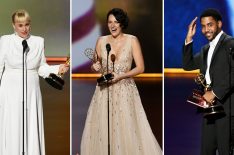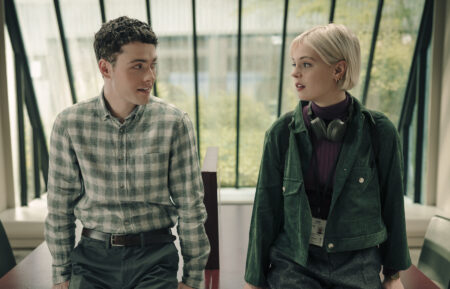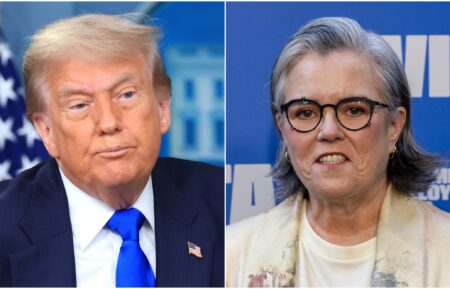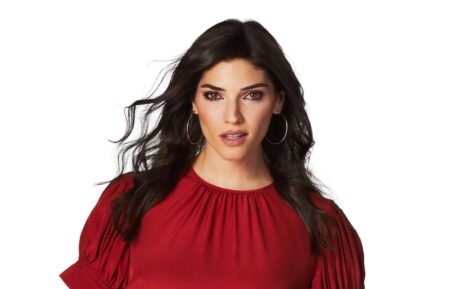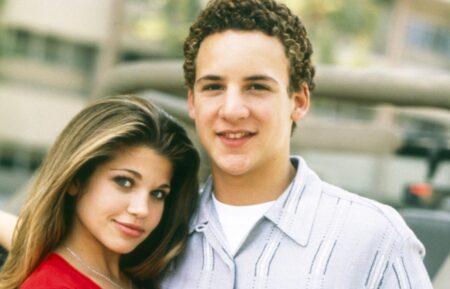Critic’s Notebook: Emmys Were a Great Night for ‘Fleabag,’ Lousy for the Viewer
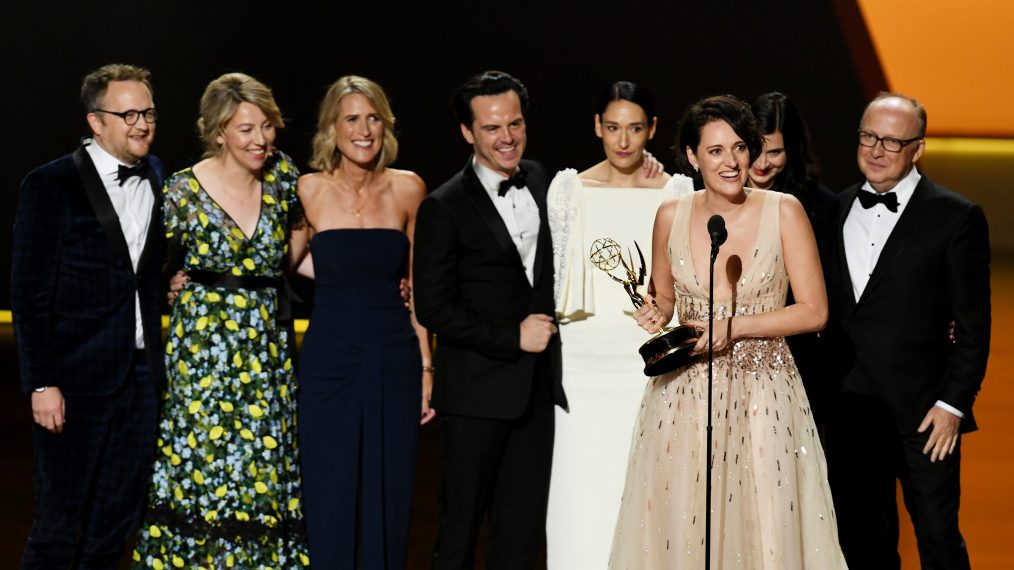
Review
What we’ll remember about Emmy night 2019: the fabulous Phoebe Waller-Bridge owning it, stealing the comedy spotlight with charm and glamour, as Amazon’s fabulously edgy and heartfelt Fleabag won prize after prize, culminating in an upset against past winners Veep and The Marvelous Mrs. Maisel for the comedy-series award.
“It’s reassuring that a dirty, pervy, angry, messed-up woman can make it to the Emmys,” Waller-Bridge quipped on her first trip to the stage for writing. Make it she did. All that was missing was the promise of a third season.
What we’ll forget about Emmy night 2019, if we’re lucky: Just about everything else, as the producers did away with a host but kept finding new ways to bore or annoy us—none more grating than the witless voice-over commentary from Thomas Lennon after each award. A hoot on shows like Reno 911!, Lennon bombed from the get-go with his smug jokes, earning hisses from his dig at disgraced actor (and former Emmy winner) Felicity Huffman: “Hopefully, those two weeks [in prison] are going to fly right by.”
Wish we could say the same about the Emmys, which dragged endlessly (though it only went one minute over the allotted time) from the painful opening shtick, where Anthony Anderson pretended to steal Emmys backstage, to a deadly dud of a Tik Tok gag from Ken Jeong, and a pointless routine from Ike Barinholtz and the usually reliable Maya Rudolph, pretending to have just had Lasik surgery while mangling names of nominees.
.@BlessTheHarts‘ @MayaRudolph and @ikebarinholtz are having a little trouble reading the #Emmys teleprompter tonight. 👀 pic.twitter.com/y2qZvINpwI
— FOX (@FOXTV) September 23, 2019
The best bits: a scowling Bob Newhart (who recently turned 90) introduced like a wax figure as Ben Stiller went on about comedy legends, and banter between late-night stars Stephen Colbert and Jimmy Kimmel about the apparently endangered species of awards-show hosts. “Without a host, who would sit behind a desk and pretend to be interested in Jason Bateman’s vacation stories?” cracked Kimmel.
Good sport Bateman would get the last laugh, winning a surprise drama-directing win for Netflix’s Ozark, which created some last-minute suspense as to whether Game of Thrones might actually lose for its polarizing final season. It didn’t, but the win felt like an anticlimax after all that Fleabag buzz. (Thrones‘ only other prime-time win was Peter Dinklage’s fourth as supporting actor.)
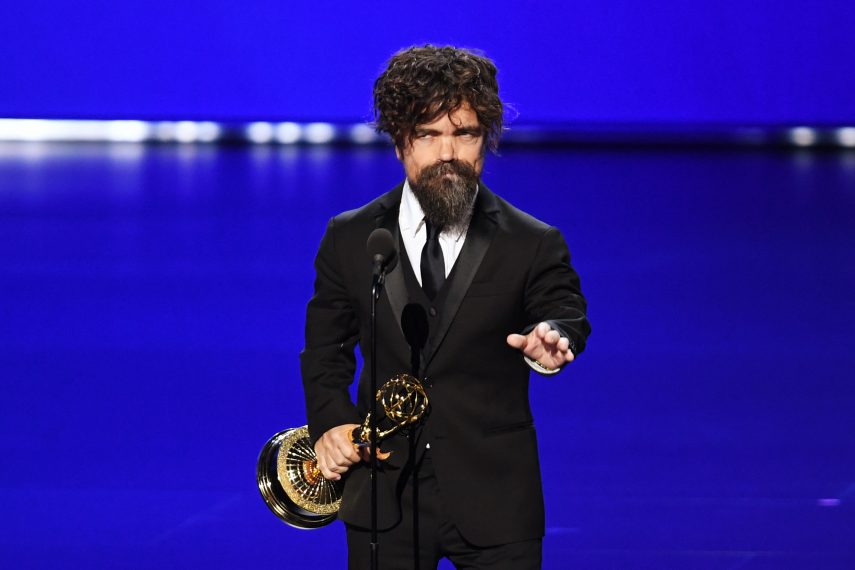
Peter Dinklage (Kevin Winter/Getty Images)
Among the other most satisfying, and deserving, wins: the flamboyant Billy Porter’s euphoria upon accepting best-drama actor for Pose; Jherrel Jerome besting a field of Oscar winners for limited-series lead actor, for his heartbreaking performance in Netflix’s When They See Us (which was otherwise shut out in favor of HBO’s Chernobyl); Jodie Comer’s drama-actress upset for Killing Eve; and Michelle Williams’ triumph as Gwen Verdon in Fosse/Verdon (with a rousing speech on behalf of female pay equality).
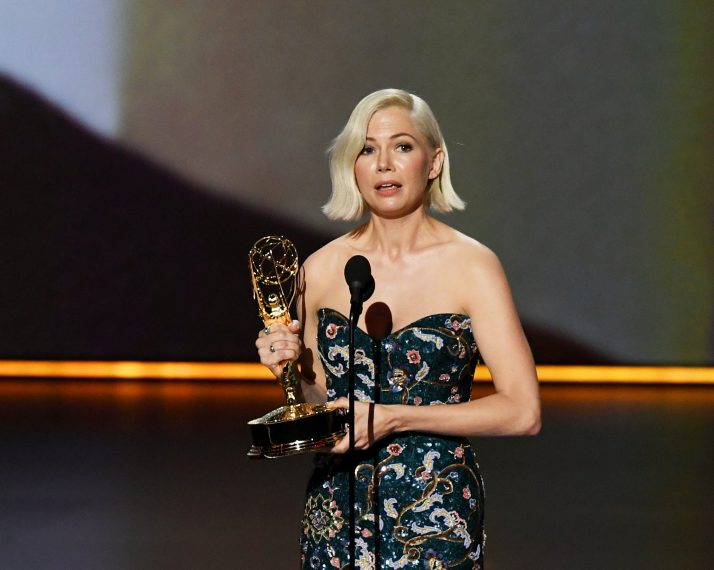
Michelle Williams (Kevin Winter/Getty Images)
Congrats to the winners, but couldn’t the Emmy show at least have tried to rise to their level? Among the many poor decisions: giving HBO’s Game of Thrones and Veep (which came away empty-handed) victory laps for their final seasons with full casts taking bows to ovations, while relegating CBS’s monster hit The Big Bang Theory to a clip reel. It’s one thing for TV Academy voters to snub nearly every broadcast network TV series (including Big Bang), but this lack of respect on the part of the Emmy producers is inexcusable.
Considering the surplus of great programming there is to be celebrated in the medium’s ever-expanding universe—the first ad break teased the launch of Disney+, with multiple ads for Apple’s streaming service throughout the night—it’s more ironic than ever when an Emmy Awards broadcast is so poorly done you begin to think you might actually hate TV.

